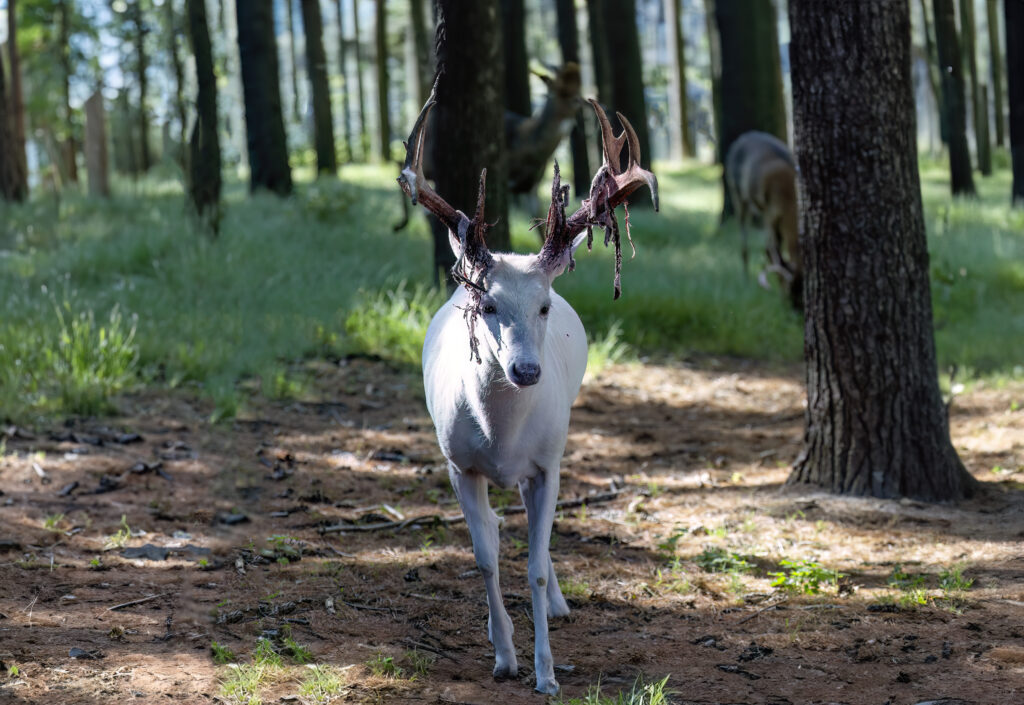News
Jake Paul Buys Storied Georgia Hunting Plantation for $39 Million
June 30, 2025 •Doug Howlett
Albino deer are rare and fascinating creatures that have captured the imagination of hunters. Unlike other deer, albino deer lack pigmentation in their skin, hair, and eyes, giving them a striking white appearance and pink or pale blue eyes. This condition, called albinism, is caused by a genetic mutation that affects melanin production. Because of their rarity and distinct appearance, albino deer are often at the center of wildlife conservation discussions, particularly when it comes to hunting regulations.
Albino deer are not a separate species but rather a genetic variation of common deer species such as white-tailed deer, mule deer, or black-tailed deer. Albinism can occur in any deer species and is characterized by a complete lack of melanin, the pigment responsible for coloration in mammals. This lack of pigment results in white fur, pink eyes, and often a heightened sensitivity to sunlight.
Due to their unique appearance, albino deer can face several challenges in the wild, including reduced camouflage from predators and potential health issues related to vision and skin sensitivity. However, their rarity and distinct look have also made them a subject of fascination and protection in some states.

Several states have recognized the special status of albino deer and have implemented regulations to protect them from hunting. These regulations are often put in place due to the rarity of albino deer and the desire to preserve these unique animals. The following states have specific laws prohibiting the hunting of albino deer:
In contrast to the states that protect albino deer, several states used to have specific laws prohibiting the hunting of these animals. Now in these states, albino deer are treated the same as any other deer in terms of hunting regulations:
The regulations surrounding the hunting of albino deer vary significantly across the United States, with some states offering protections due to the rarity and unique status of these animals, while others do not differentiate between albino and non-albino deer in their hunting laws. For hunters, it is crucial to be aware of the specific regulations in their state to ensure compliance with local laws.
Before heading into the field, always consult your state’s Department of Natural Resources or equivalent agency for the most up-to-date hunting regulations. By respecting these guidelines, hunters can contribute to the conservation and ethical management of wildlife populations, including the rare and beautiful albino deer.